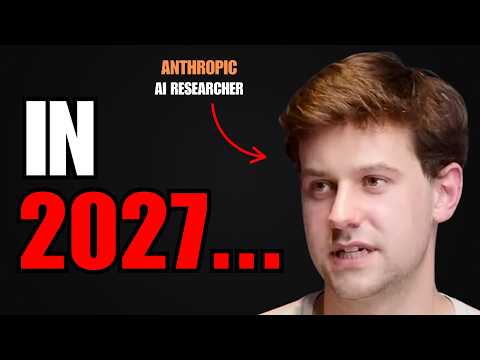AI is predicted to automate most white-collar jobs by 2027, leaving companies and individuals largely unprepared for the significant disruptions and job displacements that will result
Questions to inspire discussion
Preparing for AI Automation
🤖 Q: How can individuals prepare for the AI-driven job market shift?
A: A: Use AI tools actively, familiarize yourself with their capabilities, and stay informed about the latest AI developments to avoid being blindsided by the inevitable shift in the job market.
💼 Q: What should companies do to prepare their workforce for AI integration?
A: Get employees familiar with AI tools immediately, not in 2-3 years, by having every white-collar worker become an AI user now to prevent them from becoming obsolete.
Timeline and Impact
📅 Q: When is white-collar work expected to be significantly automated?
A: AI researchers predict white-collar jobs will be automated by 2027-2028, with a straight line of job dislocation and career remapping for millions between 2029-2031.
💻 Q: Why is this automation possible with current technology?
A: Sufficient data and economically valuable tasks can be automated even with today's algorithms, requiring no new models for implementation.
Economic Drivers
📈 Q: What's motivating tech companies to pursue AI automation?
A: Tech companies are focused on maximizing profit and minimizing cost, willing to lay off half their workforce to become more productive and competitive.
🏢 Q: How will this affect other industries?
A: The competitive advantage gained by early AI adopters will force other companies to follow suit, leading to widespread job displacement across industries.
Key Insights
AI Automation of White-Collar Jobs
🤖 By 2027, AI models will be capable of automating any white-collar job, with China likely experiencing this impact first and transforming dramatically within 20 years.
💼 Even with today's AI systems, companies could automate nearly every white-collar job if they had the right infrastructure, tooling, and data.
💰 Automating white-collar work is economically worthwhile compared to the total addressable market of salaries for these jobs.
Timeline and Impact
⏰ The end of white-collar work is predicted to occur between 2029-2031, with unprecedented job dislocation expected in 2026-2027.
🌪️ The AI future is projected to be disruptive and unpredictable, leaving no time to prepare for the impending changes in the job market.
Current AI Capabilities
🧠 The current suite of algorithms is sufficient to automate white-collar work, provided there is enough of the right kinds of data.
#SyntheticMinds
XMentions: @HabitatsDigital @AICopium
Clips
-
00:00 🚨 White collar jobs are predicted to face significant automation by the end of the decade, leaving companies and individuals unprepared for the impending changes.
-
01:35 🤖 By 2027-2028, AI models are likely to automate most white-collar jobs due to the abundance of digital data and scalable algorithms.
-
02:38 🤖 AI is predicted to automate most white-collar jobs by 2027, but preparations are lacking.
- AI is expected to dramatically change white-collar work by 2027, but current efforts and new AI models are not being prioritized to prepare for and mitigate this impact.
- Current AI systems can already automate nearly every white-collar job if companies have the right infrastructure, tools, and access to sufficient data, and this automation is expected to occur within the next 5 years.
-
04:28 💼 Automation of white-collar jobs is not only possible but economically advantageous, leading to widespread job displacement across various sectors as companies prioritize profits.
-
06:01 🤖 Experts warn AI will disrupt and eliminate white-collar jobs by 2027, leaving little time to prepare and retrain.
- Experts warn that AI will disrupt and largely eliminate white-collar jobs by 2029-2031, leaving little time to prepare and retrain millions of people.
- Massive job dislocation in white-collar work is expected by 2026-2027, and companies are under-prepared, needing to quickly upskill employees to work with AI.
-
07:45 🤖 The rapid automation of white-collar jobs by 2027 will drastically disrupt career paths, leaving many people unprepared and struggling to adapt.
-
09:06 🤖 Companies are likely to prioritize profit and cost-cutting through AI adoption, even if it means widespread job displacement, leaving workers to adapt and prepare for an uncertain future.
- 10:21 🤖 The rapid advancement of AI will likely cause significant disruption to many jobs, particularly in offices, by 2027, and most people are unprepared for this change.
-------------------------------------
Duration: 0:11:16
Publication Date: 2025-06-11T10:11:01Z
WatchUrl:https://www.youtube.com/watch?v=8m_AgIGjwJE
-------------------------------------

